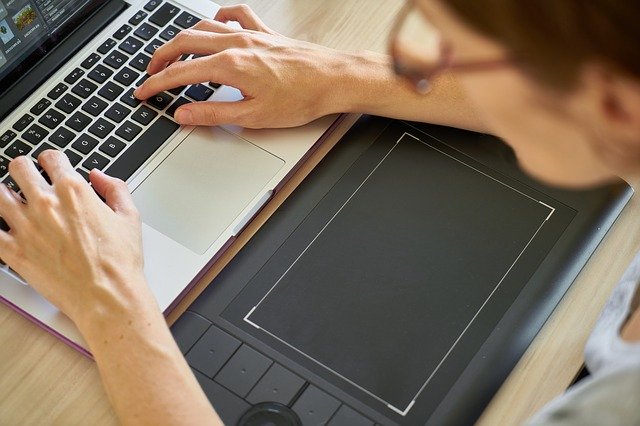It is a bright, cold day in April. The clock strikes, the laptop is on and the test begins. A teacher sits in front of a screen and looks into 30 bedrooms of students taking the test digitally. An alert appears: a student looks to the left. Is there perhaps cheating?

Since March 16, students and students have been homeschooled. Everyone seems to be used to remote digital education with video calls, streams or an image connection. In education, solutions for test-taking at home are being worked on. Several educational institutions are using online surveying for tests. There is a lot of experimentation with proctoring software, software for online surveying. Can and should this be allowed? What do you have to take into account? And more importantly: is this development desirable?
In online proctoring, educational institutions monitor pupils or students online during a test or examination. This can be done in a variety of ways. For example, a teacher can watch live what students are doing at home and check the home environment prior to the exam. Proctoring software can also be used, where the web camera signals if the student is looking the other way, if the microphone is picking up and if paper is being rustled. Smart software monitors everything, rather than requiring a teacher to monitor 30 students at once. Teachers can use the software to watch live or review images afterwards.
When asked whether the use of this software is permissible, the Minister of OCW answers that "[t]he General Data Protection Regulation (AVG) does not prevent the use of surveillance software, provided that its application is in line with all legal requirements (...)."(1) The educational institution itself is responsible for the use of this software, and must demonstrate that it is "in line with the obligations of the AVG, in particular with the principles of lawfulness, propriety and transparency, purpose limitation, minimum data processing, accuracy, storage limitation and integrity and confidentiality." The Autoriteit Persoonsgegevens (AP) does not rule out the use of proctoring a priori,(2) but doubts that alternatives are not available that have less or no impact on the privacy of pupils and students. The AP insists on the necessity for using digital surveying, according to the AP's eight tips for using proctoring software.(3)
SURF's recently updated "Whitepaper online proctoring" substantiates whether and how educational institutions can make use of proctoring software.(4) SURF emphasizes that the basis of "consent" must be treated with caution. For secondary and senior secondary vocational education, this includes the fact that consent must be given by parents. The grounds "performance of a task in the public interest" and "legitimate interest" therefore seem the most obvious. The use of online proctoring should be reassessed after the corona crisis.
Students and pupils are very concerned about their privacy.(5) Teachers watch in their bedrooms, they see everything. According to the minister, the student or pupil should just adapt: "If students do not want such data to be inferred from the images, they can, as far as possible, ensure that the external features that give rise to this are not in the picture. They are also free to choose not to participate in this form of examination."(6)
Giving students and pupils the freedom to choose not to take their tests or exams, with the possible consequence of failing or being delayed in their studies, seems difficult beforehand. The discussion centers on whether online surveying is permitted by law. This seems to ignore the question of whether the use of online supervision is desirable. As an educational institution, do you really want to enter an educational participant's home or bedroom in this way? By corona, everything seems to be seen in a different light. It is still important to use common sense. Boards of educational institutions should not only ask themselves whether the use of proctoring software is possible and permissible, but whether it is desirable.
If an educational institution does want to use proctoring software, it is advisable to consult SURF's white paper in advance. The AP's tips help educational institutions think critically about using the software. Kennisnet's lesopafstand.nl site provides tips on remote testing and the practicalities of online proctoring.
(1) Minister of OCW response to questions on surveillance software students, April 28, 2020, https://www.tweedekamer.nl/zoeken?search_str=2020D16219
(2) https://www.privacy-web.nl/nieuws/zorgen-om-dataverzameling-bij-thuisonderwijs
(3) https://www.privacy-web.nl/publicaties/ap-tips-beeldbellen-en-proctoring-onderwijs
(4) https://www.surf.nl/whitepaper-online-proctoring-surveilleren-op-afstand
(5) https://nos.nl/op3/artikel/2331989-software-tegen-spieken-dat-gaat-gewoon-echt-te-ver.html
(6) https://www.privacy-web.nl/nieuws/antwoorden-kamervragen-over-het-bericht-dat-universiteiten-met-surveillance-software-studenten-thuis-in-de-gaten-houden

